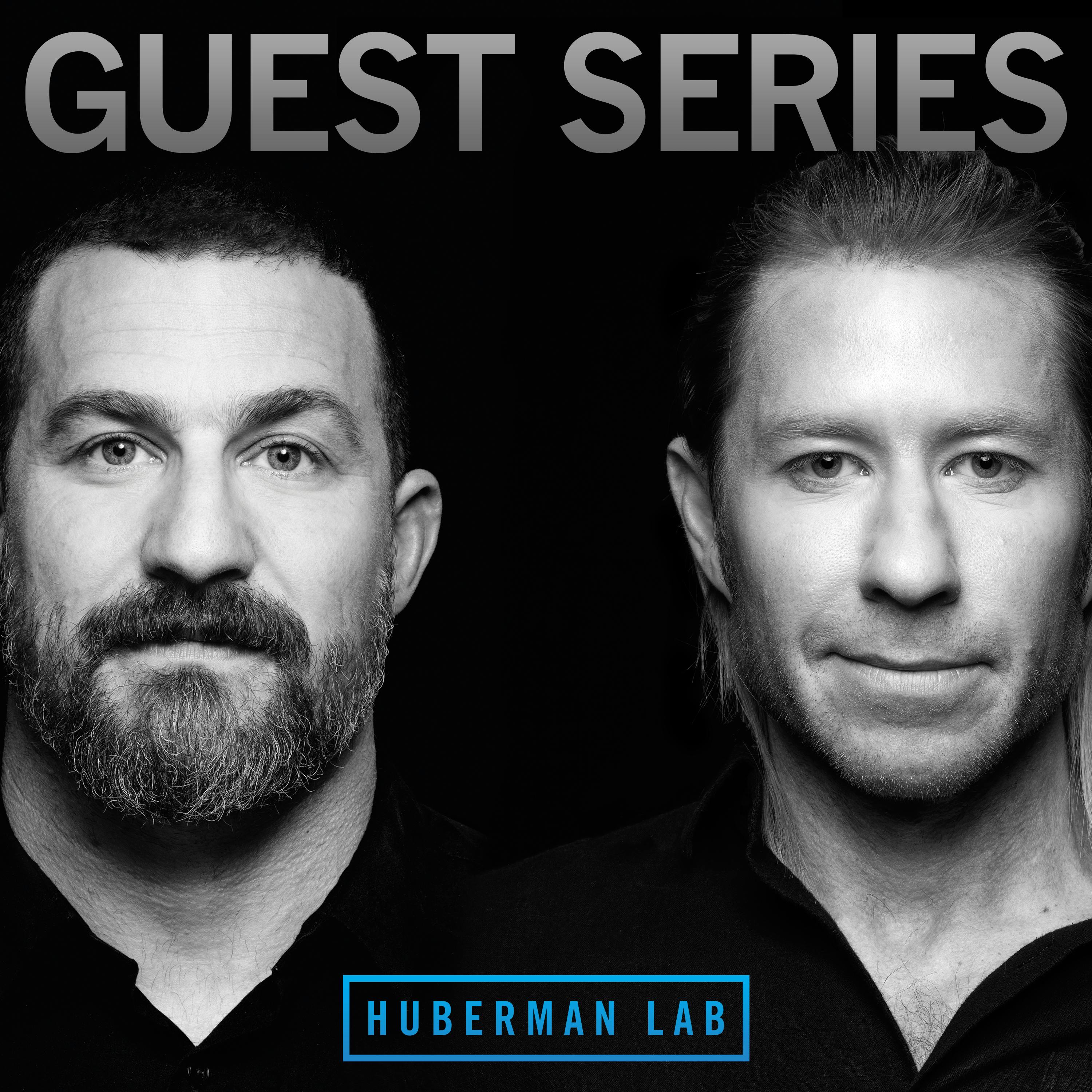
GUEST SERIES | Dr. Matt Walker: Improve Sleep to Boost Mood & Emotional Regulation

Huberman Lab
Deep Dive
- No psychiatric condition has been found with normal sleep patterns.
- REM sleep deprivation leads to increased emotional reactivity, paranoia, hallucinations, and even psychosis.
- The amygdala, responsible for emotional reactions, shows a 60% increased reactivity with sleep deprivation.
- Lack of sleep weakens the connection between the prefrontal cortex (responsible for emotional control) and the amygdala, leading to emotional instability.
- Even minor sleep disruptions can significantly impact mood and emotional regulation.
Shownotes Transcript
This is episode 5 of our 6-part special series on sleep with Dr. Matthew Walker, Ph.D.), a professor of neuroscience and psychology at the University of California, Berkeley and the host of The Matt Walker Podcast. In this episode, we explain the connection between sleep and mood, emotional regulation and mental well-being.
We explain the role of rapid eye movement (REM) sleep in processing emotions and emotional memories and why sleep deprivation causes agitation, impulsivity and emotional reactivity.
We also discuss why sleep disruption is a hallmark feature of PTSD, anxiety, depression, suicidality, and other psychiatric conditions.
We explain protocols for improving REM sleep and other sleep phases in order to harness the therapeutic power of quality sleep to feel calmer and emotionally restored.
This episode describes various actionable tools to improve sleep for those struggling with mental health or mood and those wanting to bolster their overall state and well-being.
The next episode in this special series explores dreams, including lucid dreaming, nightmares and dream interpretation.
For show notes, including referenced articles and additional resources, please visit hubermanlab.com).
Thank you to our sponsors
AG1: https://drinkag1.com/huberman)
Eight Sleep: https://eightsleep.com/huberman)
LMNT: https://drinklmnt.com/huberman)
BetterHelp: https://betterhelp.com/huberman)
InsideTracker: https://insidetracker.com/huberman)
Momentous: https://livemomentous.com/huberman)
Timestamps
(00:00:00) Sleep & Mental Health
(00:01:09) Sponsors: Eight Sleep, LMNT & BetterHelp
(00:05:14) Emotions & Sleep, Amygdala
(00:17:27) Emotional Memory & Sleep
(00:25:48) “Overnight Therapy” & REM Sleep, Noradrenaline
(00:29:13) Sponsor: AG1
(00:30:27) Sleep to “Remember & Forget”, Trauma; REM Sleep
(00:38:27) Hinge Analogy; Motivation, Impulsivity & Addiction
(00:47:08) Tool: Improve REM Sleep, Social Jet Lag, Alcohol & THC, Addiction
(00:56:18) Sponsor: InsideTracker
(00:57:23) Post-Traumatic Stress Disorder (PTSD) & REM Sleep
(01:06:53) Noradrenaline & REM Sleep, PTSD & Prazosin
(01:09:40) Addiction, Non-Sleep Deep Rest (NSDR); Liminal States
(01:16:46) Anxiety & Sleep, Mood vs. Emotions
(01:23:50) Deep Non-REM Sleep & Anxiety, Sleep Quality
(01:28:51) Tool: Improve Deep Non-REM Sleep, Temperature; Alcohol
(01:34:56) Suicidality & Sleep, Pattern Recognition; Nightmares
(01:46:21) Depression, Anxiety & Time Context
(01:51:24) Depression, Too Much Sleep?; REM Changes & Antidepressants
(01:57:37) Sleep Deprivation & Depression
(02:01:34) Tool: Circadian Misalignment & Mental Health, Chronotype
(02:04:05) Tools: Daytime Light & Nighttime Darkness; “Junk Light”
(02:13:04) Zero-Cost Support, Spotify & Apple Reviews, Sponsors, YouTube Feedback, Momentous, Social Media, Neural Network Newsletter